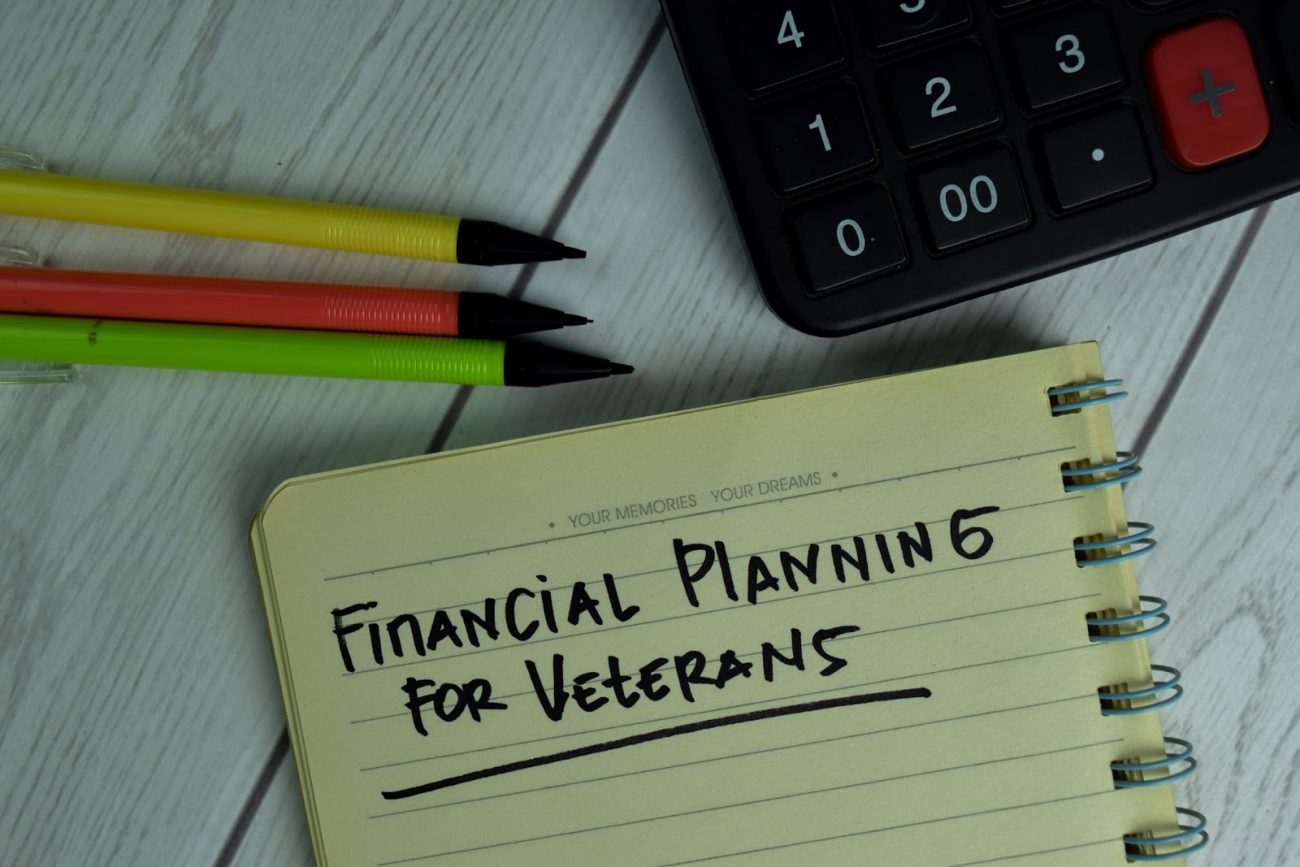
5 Ways Veterans Can Plan For Retirement
If you’re currently in the active military or are a military veteran in the Greeneville, Tennessee area, you need to know how to plan for your retirement. Many service members are aware of the generous pension the military offers. However, the percentage of members qualifying for it by serving to the 20-year mark is low, at 15 percent. Plus, a pension is only part of a strong retirement plan – there are many other factors.
Here are five ways veterans can plan for retirement:
- Forecast your estimated income and expenses
- Know the benefits to which you’re entitled
- Save as much as you can for retirement
- Create an emergency fund
- Work with a CERTIFIED FINANCIAL PLANNER™ Professional who has experience in the military
Forecast your estimated income and expenses
The first step is to calculate your likely income versus expenses. If you’re separating from the military, this can be especially important, because you are transitioning from an environment in which some major expenses were paid for or offered at a discount. Once you ETS, that will no longer be true. You want to make sure that your spending doesn’t exceed your income, and that you’ll be able to live comfortably on your income.
Let’s Discuss Ways You Can Prepare For Retirement. Contact Sapiat Asset Management Today!
Many members of the military receive transition pay and financial assistance with the first move. Sit down and calculate how much you will receive, so you know how much income you’re working with.
If you do qualify for a pension, get the facts and figures before separation. How much income will you receive?
Then, calculate your estimated expenses. Break them down into major categories, such as mortgage/rent, groceries, utilities, eating out, and so forth. Keep tabs on your daily spending with software designed for the purpose or with a notebook. (The purpose is to know how much you’re spending, not necessarily to curtail it.)
Keeping track of expenses and income like this allows you to know how much you can devote to savings and planning for future events, like vacations. It also allows you to know if you need to cut back on spending to remain within your means and avoid debt.
Know the benefits to which you’re entitled
The military offers generous benefits and advantages to service members and veterans. Make sure that you get everything to which you’re entitled.
Mortgages through the U.S. Department of Veterans Affairs (VA), for example, offer highly advantageous terms, such as low-interest rates and down payments lower than other types of mortgages. If you are planning to buy a home at any point in the future, a VA loan can save you thousands over the life of the mortgage.
If you are interested in more training and education at any point, similarly, know your benefits. The Post 9/11 GI Bill, for instance, can provide more than $100,000 in education benefits.
Familiarize yourself with your military retirement plan. You may have a pension, which is a defined benefit (DB) plan. The military also offers a Thrift Savings Plan (TSP), which is a defined contribution (DC) plan, where you determine your own contributions (which are often matched by the government). Depending upon your period of service and timing, you may also be eligible for the Blended Retirement System (BRS), which combines a pension and a DC plan.
Save as much as you can for retirement
A primary advantage of a TSP plan is that you can save a high amount for your retirement every year. For 2021, you can contribute up to $19,500 per year. If you are 50 years old or older, you can contribute an additional $6,500 every year.
TSP contributions are taken out pre-tax, so your savings can lower your overall income in a way that saves you on taxes. The contributions and any appreciation grow tax-free as well until you withdraw them upon retirement. They are taxed at your existing rate upon withdrawal in retirement.
Create an emergency fund
Service members are moving from an environment in which many of their needs are taken care of to one in which they will exist in the open marketplace.
It’s prudent to save in order to provide your life post-military with a financial cushion as a result. Plan to save roughly three to six months’ salary in a savings account for an emergency fund.
An emergency fund ensures that you’ll have money for unexpected expenses, such as a car repair or a sudden period of unemployment. The lack of an emergency fund can send you into debt – which in turn, creates a debt payment against your income every month. It’s prudent to avoid debt if you can.
Work with a CERTIFIED FINANCIAL PLANNER™ Professional who has experience in the military
Separating from the military is complicated. While military benefits and retirement plans are generous, understanding them and making the most of them is complicated.
That’s why one of your strategies should involve working with a financial advisor who is also a veteran. The retirement plans and benefits of veterans are very specialized – even the terminology used is not necessarily the same as that used in the civilian-only world. (TSP retirement plans, for instance, are very similar to civilian company 401(k) plans.) Someone who has been through the process and understands veterans’ lives can provide better assistance and support.
It’s also important to look for the designation indicating that the advisor is a CERTIFIED FINANCIAL PLANNER™ Professional. These professionals are required to show expertise in investment advice, retirement advice, comprehensive financial planning, tax issues, and more. The expertise comes from multiple years of experience and specific training and education.
A CERTIFIED FINANCIAL PLANNER™ Professional can assist you with a comprehensive financial plan and/or investment management. They begin by discussing your overall life goals because all your financial decisions should be designed to reach these goals. After that, they review your budget, including your income and expenses. They review your retirement savings and allocations. They can also offer advice on insurance, education savings, estate plans, and more.
How do you find a CERTIFIED FINANCIAL PLANNER™ Professional veteran you feel comfortable working with? Interview several in exploratory meetings before making a final decision. (That’s standard practice, and they should offer these meetings free of charge.)
During exploratory meetings, note how you feel in their offices, talking to them, and receiving information from them. Do you feel you can bring up issues of importance to you, for example? Do you feel comfortable asking questions? When you ask a question, is the answer clear to you?
Sapiat Asset Management is a Veteran owned and operated financial advisory firm. We offer discounts to active military and honorably discharged veterans. We use our military experience as well as a unique, personalized process to identify the needs of our clients. Our knowledge of your financial situation is a big part of the foundation that drives our relationship with you. Contact us today for a complimentary consultation.
Sapiat Asset Management is a Fee-Only, Independent, Registered Investment Advisor (RIA), specializing in goal-oriented financial planning and investment management for Gen X Individuals & Families, their Businesses, & the Trusts that benefit them and their heirs.

